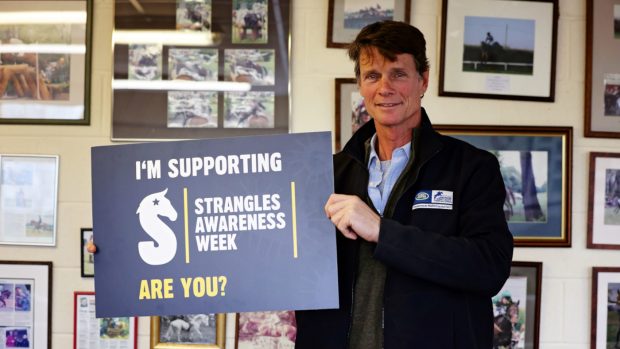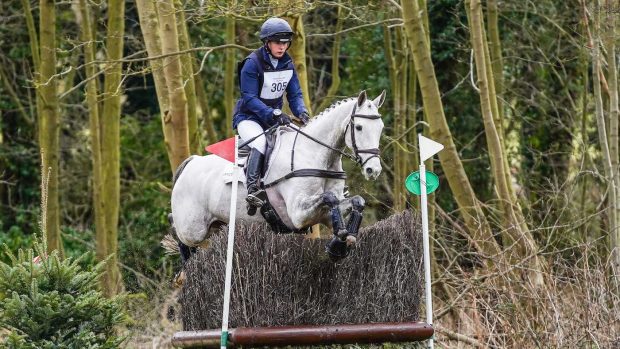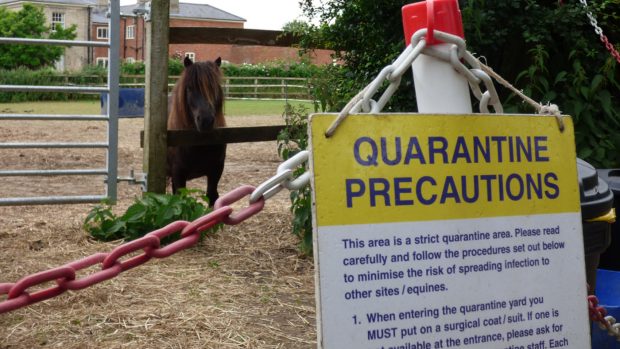Strangles appears to be on the rise and owners may be not be picking up early signs of it, warn vets and welfare charities.
A fifth of horses coming into Redwings sanctuaries in 2012 tested positive for strangles.
In one large case, from Wales, a third of the 60 new arrivals involved were infected. The charity says cases are likely to continue to rise, largely due to an increase in the movement of horses around the country. In particular, they say, many lower-value horses are being sent to sales, which are prime breeding grounds for the disease.
Strangles is not airborne, but passes via direct contact or through water buckets, feed and equipment.
To tackle the problem, Redwings has released a Strangles: Speak Out! information pack.
“Strangles is not only highly contagious and potentially life-threatening, but it carries a very unhelpful stigma with it,” said Redwings’ Rachel Angell.
“In many cases, it is only taken seriously when it’s far too late. We want to remind owners that every horse, no matter what its value or breed, is still at risk.”
Tony Tyler from World Horse Welfare added: “We are certainly seeing more cases of strangles among the fly-grazing horses that come into our farms, probably because they are in poorer condition and struggle to fight off any infection.
“Getting veterinary help and preventing disease can be less of a priority for their owners. Diseases like strangles often spread like wildfire among these horses and can cause great suffering.”
Keith Chandler, president of the British Equine Veterinary Association, said he wasn’t surprised by the news. But he added: “We are also more able to detect strangles now than five years ago and anything to raise awareness is important.”
For more information visit www.redwings.org.uk.
This news story was first published in Horse & Hound magazine (14 February 2013)





